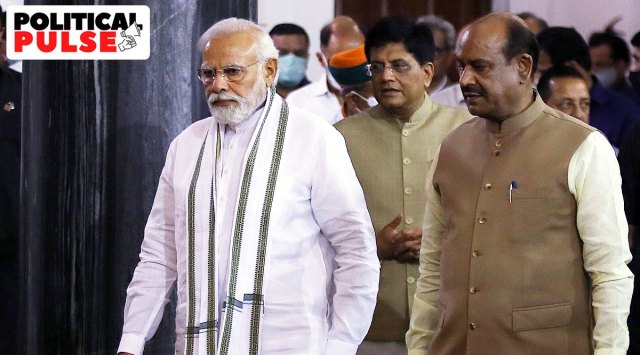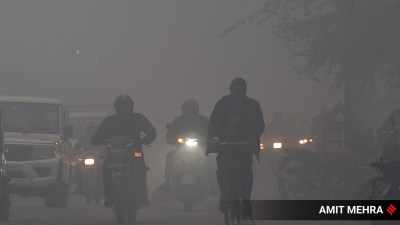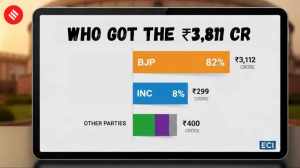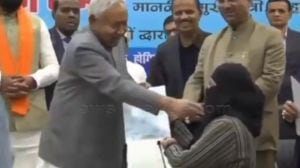IN A surprise announcement Thursday, the government said a special session of Parliament was being convened from September 18 to September 22. It gave no reason for calling the session which would have five sittings.
While sources said the agenda for the session is not clear yet, there is speculation in the BJP and official circles that the Modi government could go for a big-ticket move like initiating the process for ushering in simultaneous elections in the country or the Women’s Reservation Bill.

While a section in the government pointed to the electoral advantages of the two possibilities, others ruled these out as an agenda for a special session, especially at a time when the Opposition is uniting and is unlikely to cooperate with the government to push through a major legislation.
Parliamentary Affairs Minister Pralhad Joshi tweeted the government’s decision: “Special Session of Parliament (13th Session of 17th Lok Sabha and 261st Session of Rajya Sabha) is being called from 18th to 22nd September, having 5 sittings. Amid Amrit Kaal, looking forward to having fruitful discussions and debate in Parliament.”
Sources in the Lok Sabha Secretariat were tight-lipped about the session agenda, but said the House could meet in the new Parliament House building inaugurated in May.
The five-day session will follow the G20 Summit on September 9-10 in New Delhi, and is expected to be an occasion for the government to showcase its “successes” in various sectors, including the hosting of the global summit and the Chandrayaan-3 Moon mission.
Sources said the Winter Session of Parliament, which is usually held in November-December, could be delayed due to the upcoming state elections in Madhya Pradesh, Chhattisgarh, Rajasthan, Telangana and Mizoram.
“This session will give the government a chance to showcase its successes” before the polls in the states, a source said.
Story continues below this ad
Another source familiar with the government’s strategy said the special session is “intended for domestic as well as international politics”.
“The occasion will be used to bolster the image of the government as one that has ushered in a new era for the country,” the source said.
Last year, the Winter Session was held between December 7 and December 23, after the Assembly polls in Gujarat and Himachal Pradesh, with counting taking place on December 8.
While the government and the BJP remained tight-lipped, some leaders said the session could be similar to the special one held on the occasion of the golden jubilee of Independence Day, held in 1997 from August 26 to September 1.
Story continues below this ad
This special session of Parliament will also set the tone for the forthcoming P20 summit – a meeting of Parliamentary Speakers of G20 countries – which is to be held in New Delhi in October. Speakers from more than 30 countries have already confirmed their participation at the congregation.
The Modi government last convened a special session of Parliament on June 30, 2017 to mark the rollout of the Goods and Services Tax (GST).
A special sitting was convened on November 26, 2015 to pay tribute to the Constitution and Dr B R Ambedkar.
In 2002, the then BJP-led NDA government got the Prevention of Terrorism Bill passed at a joint sitting of the two Houses on March 26 since the ruling alliance did not have the majority to get it cleared in Rajya Sabha.
Story continues below this ad
A midnight sitting was called on August 9, 1992, for the 50th anniversary of the ‘Quit India Movement’.
On Thursday, as the Opposition parties claimed that the special session announcement was meant to “counter” the meeting in Mumbai of their INDIA bloc, a senior leader of the BJP said the special session agenda could also divide the Opposition.
“It can be an issue on which the Opposition could get divided with major parties not in a position to reject it. An initiative on simultaneous elections and the women’s quota Bill fit into that,” said one of the BJP leaders The Indian Express spoke with.
According to the leader, parties like the BJD, YSRCP and BRS – these are not part of the INDIA bloc – are likely to side with the government if these Bills are brought. But a senior leader of the YSRCP said there has been no discussion on a Bill for simultaneous elections.

































